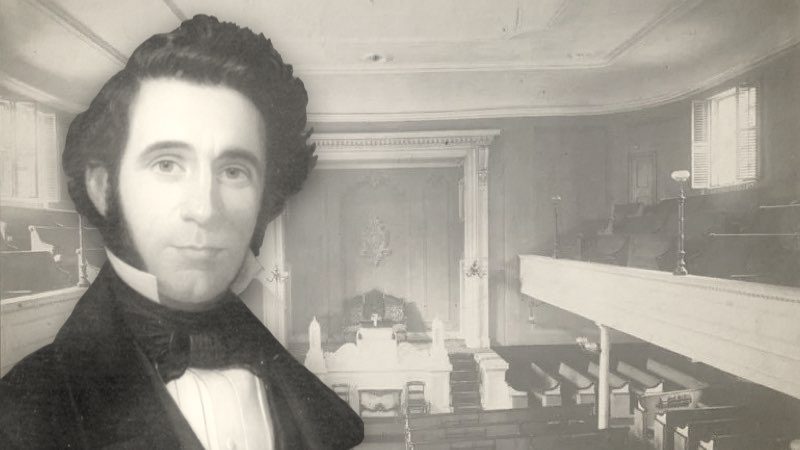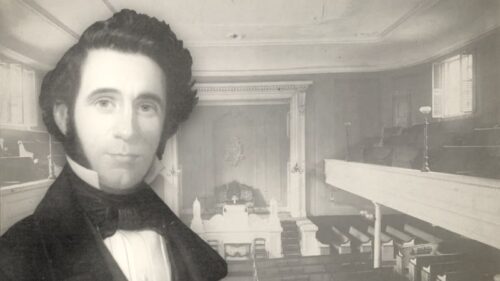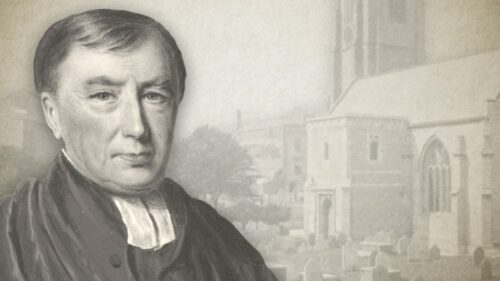-
Chapter 13: Of Preaching With And Without Notes, Considered.
The Holy Ghost hath better gifts for men in the ministry whom Christ sends, than such have yet received, who can’t so much as exhort, much less instruct without their notes. A dry paper hath been found to be a very dead assistance in the work. Sententious, premeditated forms of preaching are a Scripture-less way of preaching. And what signifies a dressed matter upon the cushion, when I find it all out of order, where it should be better dressed upon my heart? What a piece of disorder is it to read a message that is to be spoken, Tit. 2:1, 15, I Thes. 2:2, Col. 4:3, Eph. 6:19, &c., and surely, if my heart were big with my message, I need not have recourse…
-
Ten Shekels And A Shirt
Paris Reidhead (1919-1992) served with the Sudan Interior Mission during the 1940’s. During that time, he came under conviction that the modern approach to evangelism was driven by utilitarian and humanistic philosophies, deeply rooted in the free will and autonomy of man. After returning to the United States, he served as an itinerate preacher in association with the Christian and Missionary Alliance movement. He is best known for a sermon entitled, “Ten Shekels And A Shirt”, the substance of which was delivered to a congregation impromptu. Although he was not a High-Calvinist, yet there is much in his sermon which aligns with that position.
-
Article 12 – Spirital Faith A Grace, Not A Natural And Legal Duty
Articles Of The Faith And Order Of A Primitive Or Strict And Particular Baptist Church Of The Lord Jesus Christ, Based On The Declaration Of Faith And Practice Of John Gill, D. D., 1720 XII. Spiritual Faith not a Natural and Legal Duty. We believe that the “precious faith” of “God’s elect,” with which salvation is conjoined,[1] is “the gift of God, “obtained" by the elect “through the righteousness of God our Saviour,” wrought in the heart by “the operation of God,” and manifested by acts of spiritual belief or trust which are performed through gracious ability communicated by the Holy Ghost,[2] and that it is not a duty incumbent on men as men, which they can perform at their pleasure, but is obligatory only…
-
Article 11 – The Gospel: Its Nature And Invitations
Articles Of The Faith And Order Of A Primitive Or Strict And Particular Baptist Church Of The Lord Jesus Christ, Based On The Declaration Of Faith And Practice Of John Gill, D. D., 1720 XI. The Gospel—Its Nature and Invitations. We believe that the Gospel, or the glad tidings of the sovereign, free, and enriching grace of God to lost sinners, through Jesus Christ, by the Holy Ghost[1] is of the nature of a declaration or proclamation, and that to proffer mercy, or tender salvation, or offer Christ to the unregenerate, (as is often done, as if men had it in their own power to accept or reject the grace of God, and will augment their damnation if they refuse it,) is unscriptural, and wholly…
-
10 The Church’s Mission
Churches are Heaven's appointed agencies for the salvation of men. For, though it would be false and profane to say that men could not be saved outside the churches, and without their aid, yet, as a matter of fact, but few are converted and saved aside from associated Christian effort, as represented by the churches, or the zeal of personal piety, as nourished and stimulated by them. The mission of a Christian Church, therefore, is to a "world lying in wickedness," to men "dead in trespasses and sins," as the bearer of glad tidings to "prisoners of hope," and herald of the great salvation to lost men. In order to accomplish this, the Church must sustain a suitable spiritual condition, and maintain itself in the…
-
March 11—Morning Devotion
And behold, there came a leper and worshipped him, saying, Lord! if thou wilt, thou canst make me clean. And Jesus put forth his hand and touched him, saying, I will; be thou clean. And immediately his leprosy was cleansed."—Matthew 8:2-3 Behold, my soul, in the instance of this leper, thine own circumstances. What he was in body, such wert thou in soul. As his leprosy made him loathsome and offensive before men, so thy polluted soul made thee odious in the sight of God! He would not have sought a cure, had he not been conscious of his need of it. Neither wouldest thou ever have looked to Jesus, had he not convinced thee of thy helplessness and misery without him. Moreover, he would…









